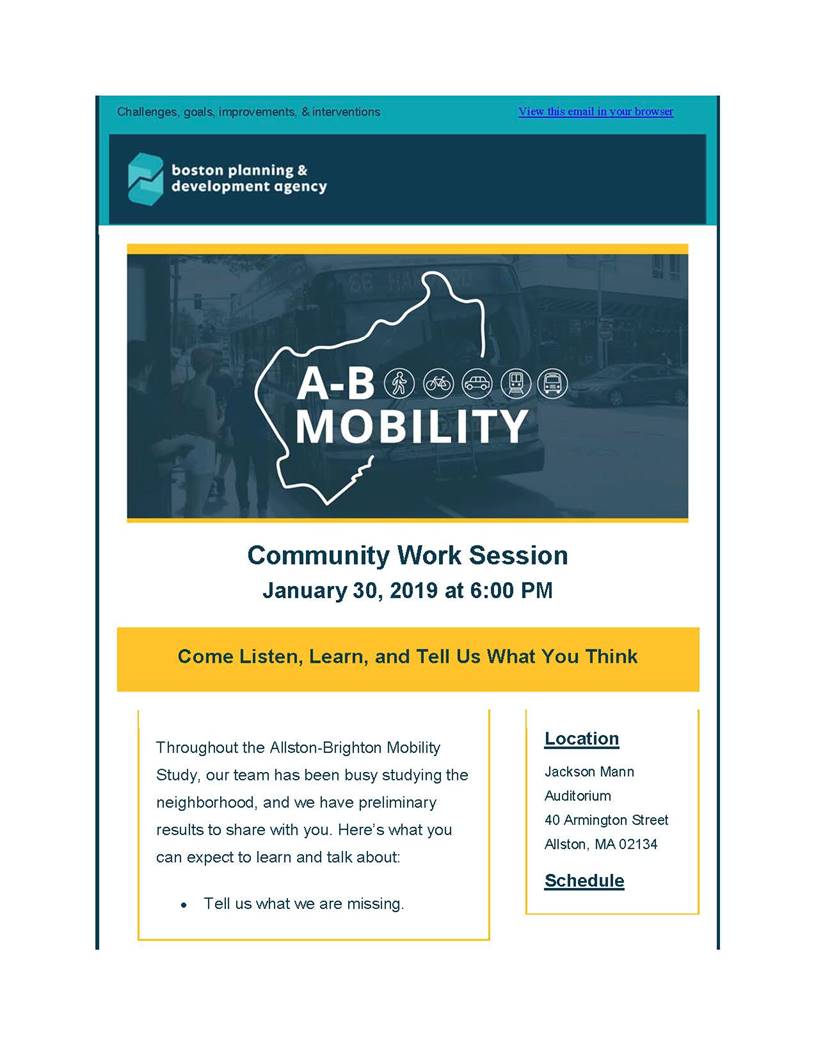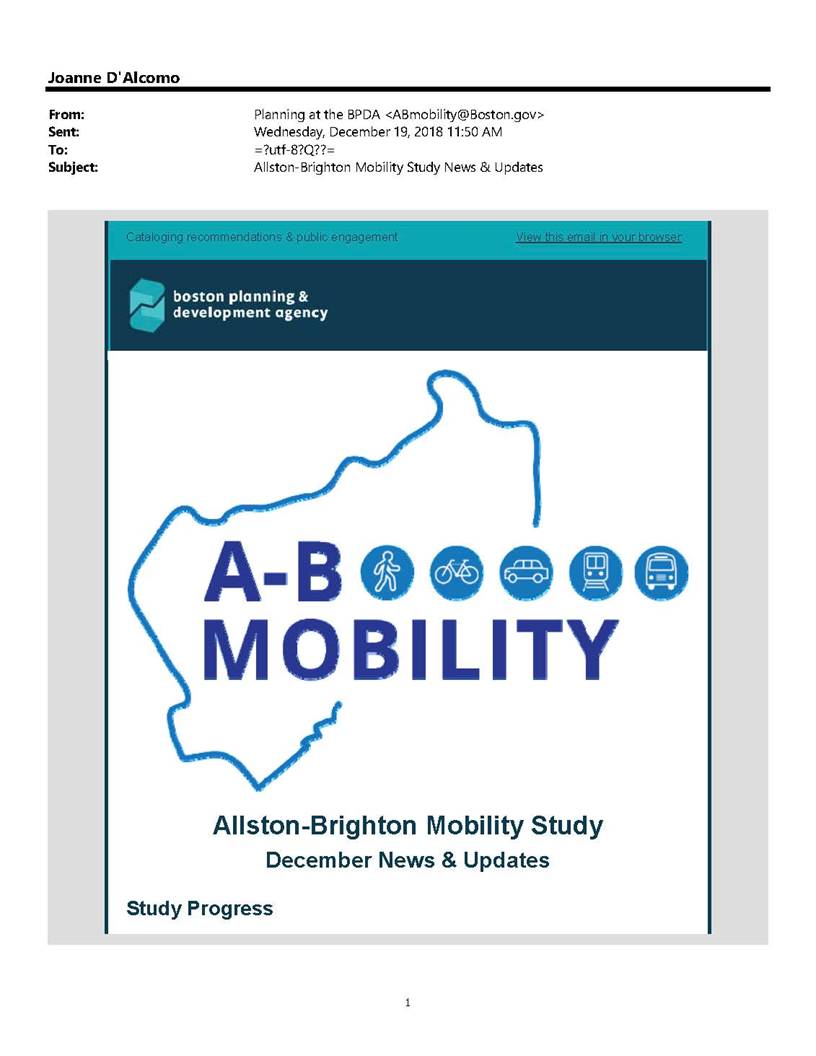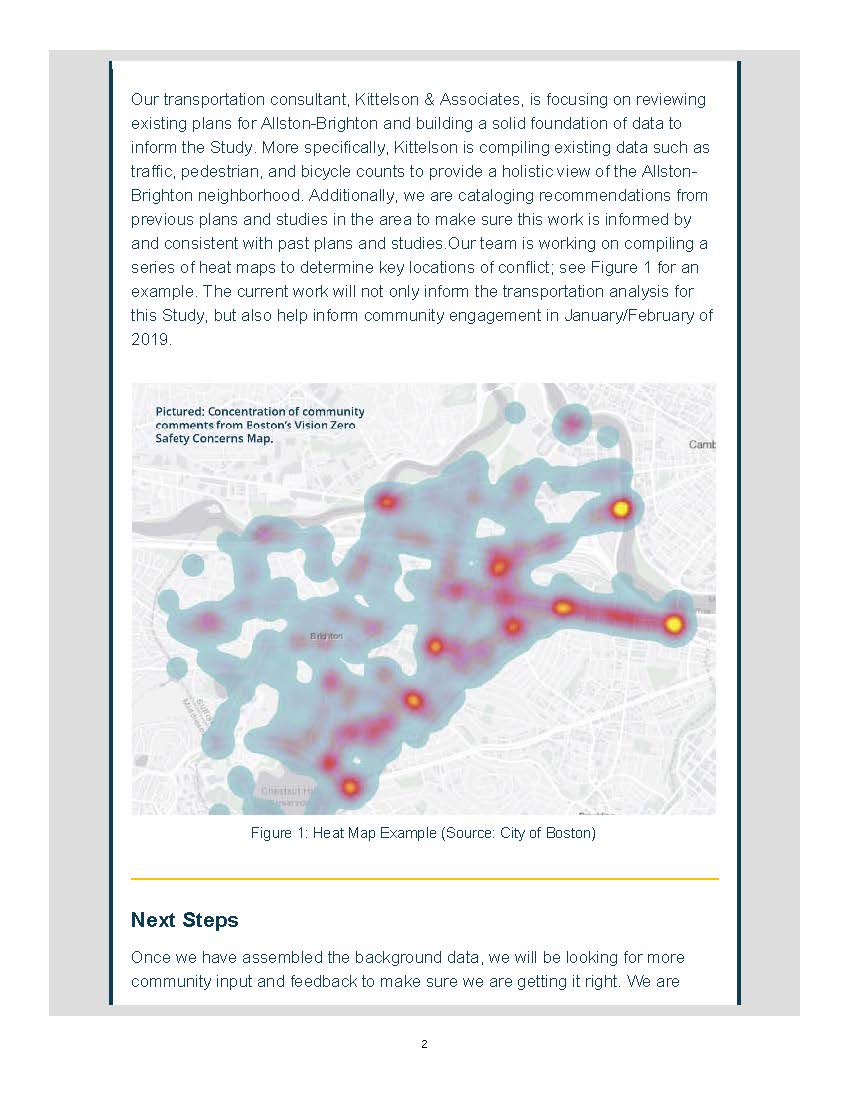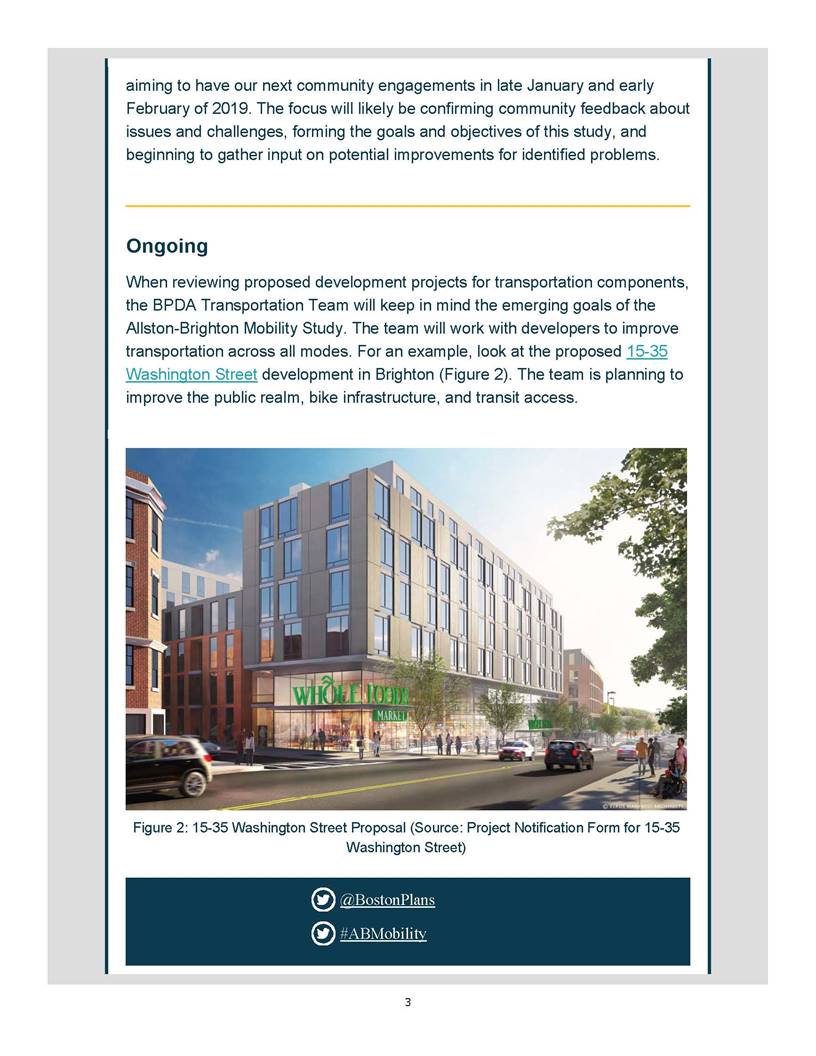Re: [Cleveland-Circle] 🔷 City-sponsored public event tonight 1/30 -- Allston Brighton Mobility Study "Working Session" , 6pm- 8pm Jackson Mann Auditorium, 40 Armington St., Allston (Union Sq., Allston)
Eva Webster
Dear Joanne,Allston-Brighton doesn't need a transportation study.We need control of development.When over-development was rampant in the 1980's, our neighborhood put a moratorium on building profusion. A volunteer committee, headed by Ray Mellone - the greenspace adjacent to the Honan Allston Library is named for him - developed a plan that instituted a 35 foot height limit and one parking space per unit requirement. Three and one-half story structures provide a human scale for a neighborhood, not the five to six story properties we are asked to comment upon again and again.A transportation study is City Hall offering us dregs.
Your continued persistence, energy and burning desire to conserve family neighborhoods is admirable. This was a desire you and I shared for decades as we have seen the voice of individual homeowners dwindle in Brighton.The fire in me diminished many years ago and has been fully extinguished by the political regime of Boston that is hell bent on replacing neighborhoods with anonymous apartment blocks and carefully controlled business establishments. It is not a tide with an ebb and flow that we are facing. It is a long slow steady current that will persistently erode the rock on which many neighborhoods once stood.
--The Boston Planning and Development Agency (BPDA) is holding a “working session” as part of the Allston-Brighton “Mobility Study” that is being worked on by a consulting firm hired by the BPDA. Details are below. This is an opportunity to give the consultant and the city some feedback on transportation concerns in Allston-Brighton, and to find out what the consultant and the BPDA are doing, and plan to do, about transportation in our area. This is an important issue, not only because public transportation and private transportation is overburdened in our area already, but because developments that are being proposed or being built will add to the strain on the inadequate systems.
Developers with major proposed projects in Allston-Brighton – such as the developer for the Whole Foods site (15-35 Washington St. ) and the AvalonBay site (139-149 Washington St) – like to say that their projects are “transit-oriented” as if merely saying it makes public transportation available. But it’s one thing for a project to be located near public transportation – it’s an entirely different matter for that transportation to serve as a meaningful and realistic way to move people where they need to go. Right now, these so-called “transit-oriented” projects aren’t near public transportation that can realistically be used to get all the thousands of people who would move into the projects where they need to go. So what is the Allston-Brighton Mobility Study addressing that?
Below are two items:
First, the BPDA’s announcement about the event, which contains the schedule.
Second, below the announcement, to give you some background, is the BPDA’s progress report about the study from December 2018 that you have to scroll far down to read in full.
.
Joanne D’Alcomo, Member of the Steering Committee of the Brighton Allston Community Coalition
Notes from the BPDA from December 2018
You received this message because you are subscribed to the Google Groups "Cleveland Circle Community" group.
To unsubscribe from this group and stop receiving emails from it, send an email to cleveland-circle-co...@googlegroups.com.
To post to this group, send email to cleveland-cir...@googlegroups.com.
Visit this group at https://groups.google.com/group/cleveland-circle-community.
For more options, visit https://groups.google.com/d/optout.
You received this message because you are subscribed to the Google Groups "Cleveland Circle Community" group.
To unsubscribe from this group and stop receiving emails from it, send an email to cleveland-circle-co...@googlegroups.com.
To post to this group, send email to cleveland-cir...@googlegroups.com.
Visit this group at https://groups.google.com/group/cleveland-circle-community.
For more options, visit https://groups.google.com/d/optout.
JOHN SPRITZLER
Eva raised some important points in her criticism of the Brighton Allston Community Coalition. I reply to those points online here.
I hope we have a robust conversation about this.
John Spritzler
On January 30, 2019 at 9:00 PM Eva Webster <evawe...@comcast.net> wrote:
...




